EMQ » April–June 2023 » Volume 59 Issue 2
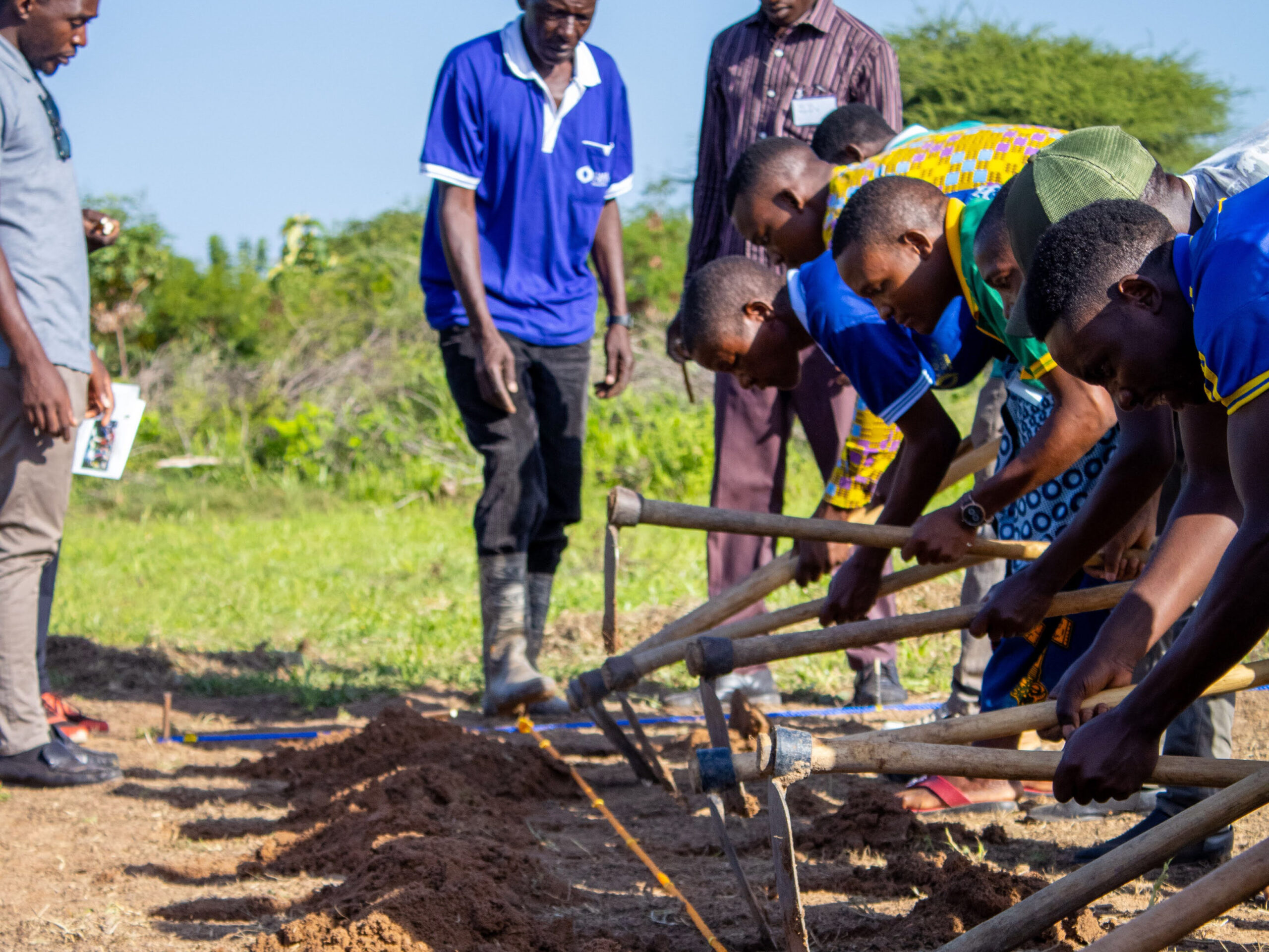
Summary: For many years we wrestled with our commitment to bring the gospel to people and participate in healing the earth. Through our involvement with Care of Creation Tanzania, we discovered a way to do both. Working in partnership with the Anglican Church of Tanzania and local community, we restored a piece of barren land in central Tanzania to a fruitful Eden. It has become a powerful testimony about who God is, who we are, and how important it is to repent of our sin and return to God.
By Alice and Martin Tlustos
While people urgently need to be reached with the gospel in Africa, they are also facing exponential population growth and declining harvests. How can you tackle three urgent needs with one project? Care of Creation Tanzania (CoCT) is doing it: preaching the gospel, training trainers in their training center, and running a model farm.
The project shows what a resurrected land looks like. CoCT is a joint venture of an American creation care organization (Care of Creation), an Austrian missions organization (Hilfe die ankommt), and the Anglican Church of Tanzania. The collaboration of these organizations illustrates how God’s people can work together in the twenty-first century to reduce the hunger of both souls and bodies and rebuild the garden of Eden.
Aligning our Passion and Ministry
In 1997, we moved to Tanzania in response to an urgent call to help unreached people groups get the Bible in their language. God used us to start a Bible translation project for ten different languages. These translations brought spiritual food to these communities.
During two of those years (1999 and 2000), we witnessed the effects of poor rainy seasons. Harvests failed, and the people around us suffered from food shortages. We mourned over lost lives, lost livelihoods, and the devastation to the previously healthy East African environment. This made us aware of another urgent need – for a restored land that could be a sustainable source of another kind of food – food to fill bellies.
But we could not reconcile how we could combine being missionaries with bringing healing to the environment. After spending several years in Austria pursuing education and working in missions administration, God led us to Care of Creation (careofcreation.org). It was the first time we heard of an organization that aligned with both of our passions: bringing the gospel to people and working to heal God’s creation. We became members of Care of Creation in 2016.
In Romans we read that the whole creation is longing for the revelation of God’s children. Being preachers of the gospel and at the same time caring and bringing the environment to its full potential is what the Lord calls us to. If God’s people reflect his glory in a healthy environment, his blessings will flow to the people and their land in abundance. Unfortunately, the environment in many parts of this globe is not healthy. Abundance and God’s glory are hardly seen.
A fast-growing population coupled with regularly failing harvests pose a massive challenge for African countries. Traditional agricultural methods based on long fallow periods often no longer work. Modern European agricultural methods (like deep plowing and large inputs of fertilizer and pesticides) are not adapted for tropical climates. While they may increase harvests for a short time, they also speed up soil degradation.
At the heart of this, we see the failure of the Church to teach people to apply the gospel to all areas of life. Discipling believers in areas like financial faithfulness or marriage issues is important, but almost nobody has taught small scale farmers how to care for God’s creation on their farms. They are alone. In many regions of the world, their only help comes from traditional practices or multinational advertising.
Bringing Resurrection to the Land
In July 2017 Care of Creation in partnership with Hilfe die ankommt sent us back to Tanzania in response to an invitation from the Anglican Church to collaborate with them on an agricultural project. They asked us to develop around 23 hectares (around 60 acres) of neglected land located behind their teacher’s college in a rural area about 25 km (15.5 m) east of Dodoma, Tanzania’s capital city. Alice took responsibility for management of the project, while Martin oversaw technical issues.
The land was so damaged that grass wouldn’t even grow on parts of it. Almost all of its larger trees had been cut down for charcoal or firewood. It was too depleted for agriculture and only used for cutting wood and feeding livestock. Water in the area was also so scarce that villagers had to line up, even at night, to fetch a single bucket of dirty water.
We realized that if we wanted to reach the poorest farmers, we needed to use the tools they have. So we built up the farm with the types of simple tools often found on nearby family farms. Because the project had no large donors, we started small. We collected tree seeds, employed local church choirs to clear thorn bushes that had overgrown in areas, and built our first house.
Our first three employees helped us dig 1.8 km (1.1 miles) of rainwater retention trenches. When the first rains came, we harvested over 1.5 million liters (400,000 gallons) of rainwater that would normally run off. Because so much more water was able to percolate into the ground, the shallow wells that we dug or improved started to fill up with water. People in the community could now get as much water as they needed at any time, day or night.
Our next step was to prepare and plant fields to demonstrate the technique of Farming God’s Way (FGW, farming-gods-way.org). Where we were told nothing would grow, our harvest yielded the equivalent of almost ten times more than a normal crop. Fungal infections also decreased in sorghum fields planted according to FGW as compared to standard planting methods.
We hired more employees and taught our whole staff the gospel, sustainable farming, and forestry techniques. They started to open their hearts to the resurrected Jesus, and by his power, they brought resurrection to the land around them.
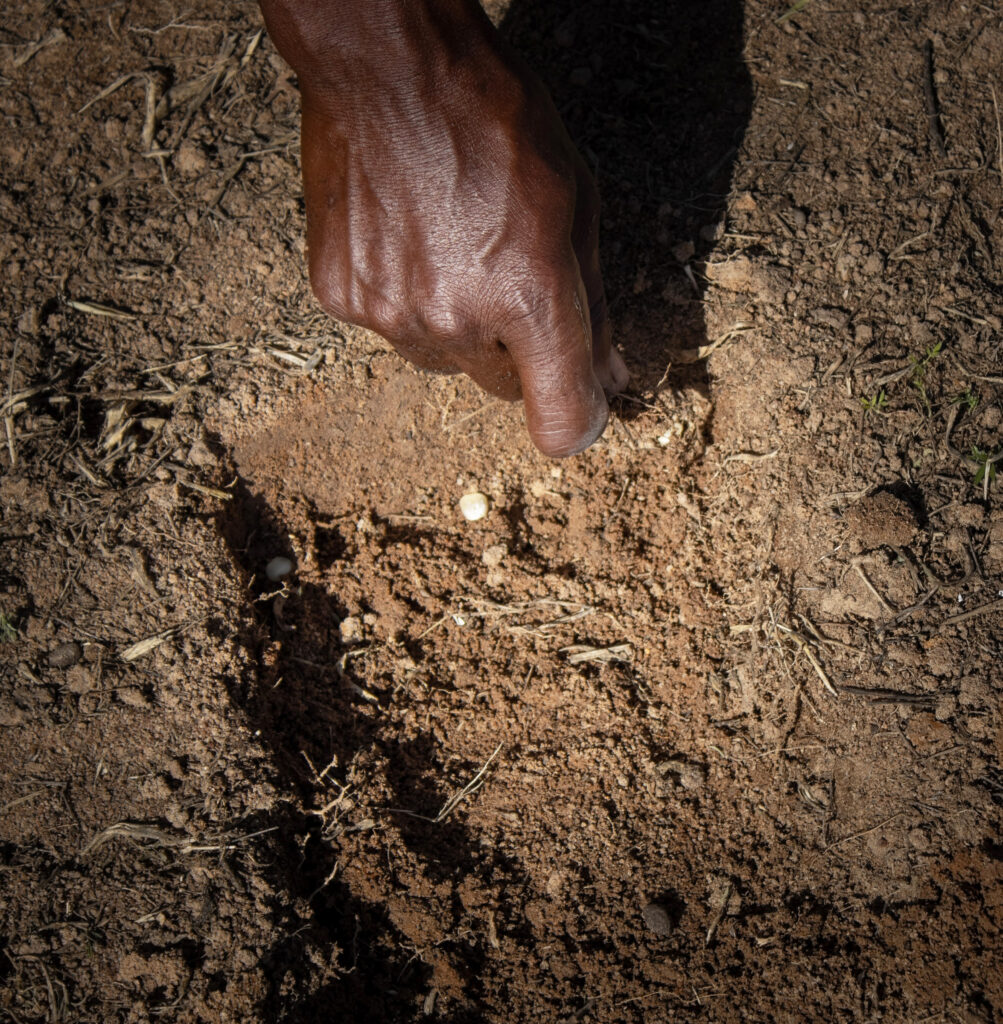
Seeing Fruit God Made Possible
Over the next few years, we continued to clear land and plant mixed fruit trees such as mangoes, avocados, a variety of citrus and annona species along with support tree species such as leucaena, gliricidia, and moringa (amongst others). These trees grow quickly, are drought hardy, and have multiple benefits for the soil. In a later stage, they will be cut back and used as tree fodder as the fruit trees take over the canopy role.
By the end of 2022, we had 40 full-time farm workers. The wasteland we cultivated now supports a variety of plants and animals. Here’s an overview of our current progress and aspirations:
- We have around 100 sheep, and aim for 200–300 sheep that we can feed on the farm all year.
- We are raising about 100 chickens that we feed on the farm, and hope to increase that to 1,000.
- We started a tree nursery which produces about 7,000 trees per month.
- Our vegetable production area covers approximately 4,000 square meters (about 1 acre).
- We cultivated mixed tree orchards with around 2,400 fruit trees and about 7,000 support species.
- Our 150m deep well that had brackish water increasingly turned sweet.
- The quantity of birds on the farm increased, and we’ve seen more than 100 different species.
We read the Bible with our staff and pray for those connected to our project every day. Many have begun to follow Jesus and are growing spiritually. Together, we have witnessed a destroyed piece of land being transformed into an oasis. We are surprised time and again by what God made possible.
If we could help to revive this piece of unfertile land, could God bring abundance here that could spread across the nation and potentially end hunger in Tanzania? How else could we see God transform the land in other parts of Africa or even the world?
Throughout the year, we run seminars for people from all over Tanzania. In them, participants learn how to care for God’s land in God’s way. Additionally, we welcome guests of all kinds to our farm. We give them farming and spiritual tours, where they get insights into the underlying principles behind our farm operations. Since this project started five years ago, thousands of people have visited us and seen with their own eyes that the Creator blesses creation if we treat it his way.
We are getting invitations to help more of God’s people to develop their land sustainably. They want to produce their own food, gain income from the land God gave them, and bless the environment so that creation can sing again. And as outside funding for ministry and development projects decreases, this becomes even more critical.
Recognizing God’s Truth in His Creation
The project we lead is not only about farming or environmental care. It is a tangible expression of our Creator and Redeemer. The farm itself is a powerful testimony about who God is, who we are, and how important it is to repent of our sin and return to God. Through the farm, we experience God’s all-sufficiency, and the astounding complexity and splendor of his creation. This restored piece of earth sings of God’s glory, preaches of his goodness, and inspires people to stand in awe and praise the work of their Master Creator.
Unfortunately, every day more of creation loses its song as people join with Satan in destroying this beautiful reflection of God’s glory. Many of God’s children participate with Satan’s army as they, too, join in bringing devasting harm to the earth. They don’t see it as a problem because they have limited sin to doing something bad or breaking God’s commandments.
But sin goes much deeper than that. It is a permeating and destructive power that leads us astray in all of our actions both individually and collectively. It is the reversal of Proverbs 3:5: we don’t trust in the Lord, but lean only on our own understanding. We forget about him in our daily endeavors and lose our way. A sinful humanity linked together creates systems that enslave us all to ways of life that become unsustainable over time.
The results of turning from God and his wisdom and relying solely on human wisdom are evident in every aspect of life. In agriculture, we see this in degraded soils, the ever-rising need of fertilizers and pesticides, the race against adapting pests, and more that leave many farmers gasping for breath.
When we turn away from God and how he designed the world to function, we may gain in the short-term, but find ourselves in increasingly problematic situations over time. That is what sin does. It leads us to our world’s current situation – daily disastrous outcomes. Sin’s impact twists, perverts, and destroys everything that resembles God. Yet when we align ourselves with God’s plan for our lives and the planet, we tap into his restorative power.
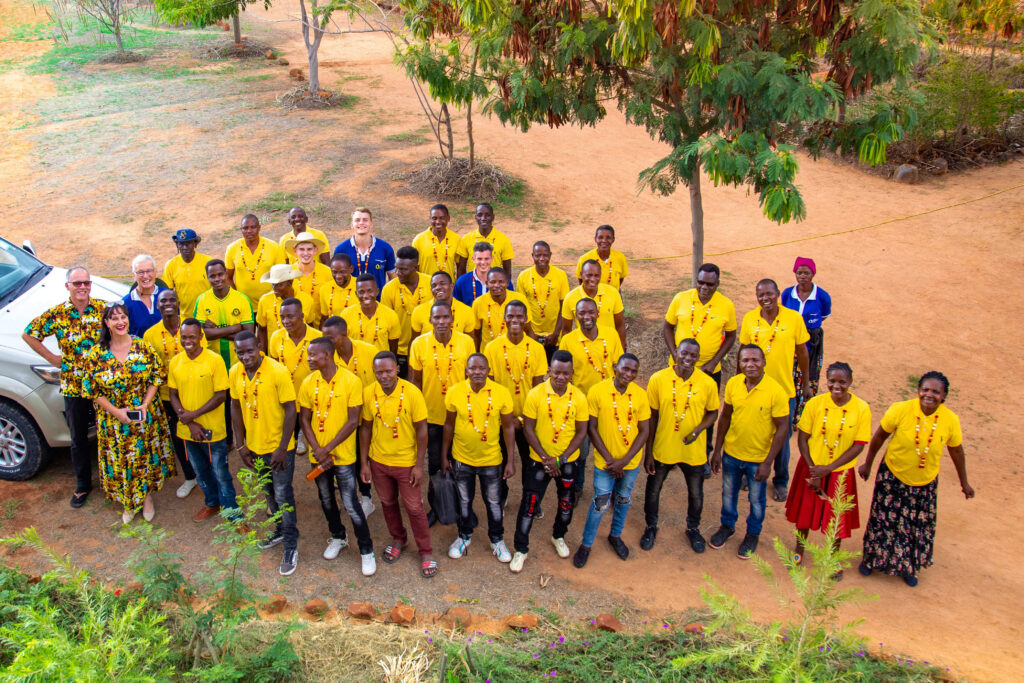
Tasting that God is Good
Every time we take a walk on our farm, we marvel at all the positive changes that occur over time. It has been a lot of work. However, because it is in alignment with how God created the environment, it is work with promise. We see more wildlife. We hear more birds singing. We discover new plants, fungi, and animals. We notice pests becoming less of a problem as their natural counterparts move in. And we experience increased productivity and resilience.
Compared to surrounding areas, where people still stick to their old ways and struggle to survive, we see great abundance and blessings. This is not only a powerful example for sustainable agriculture, but applies to all of life. What blessings could be found if we aligned ourselves to God’s blueprints for creation in our marriages, friendships, churches, and even in business!
People from around the world visit the farm not just to attend a seminar, take a tour, or to do some bird watching. They come to see God’s resurrection power in mainland Tanzania. Treating this place of desolation in God’s way turned it into a developing garden of Eden. Its renewal gives us hope that barren land across this continent and around the world can also be restored, and we share this hope when we coach others.
After 20 years in more traditional mission roles, we have found the last five years at this project to be productive and enriching, not just for God’s creation, but for us as well. Participating in God’s restoration work, both with humans and with his creation, was and is a fulfilling journey. We hope and pray that we will be allowed to continue, and we invite you to join us in tasting every day that God is good!
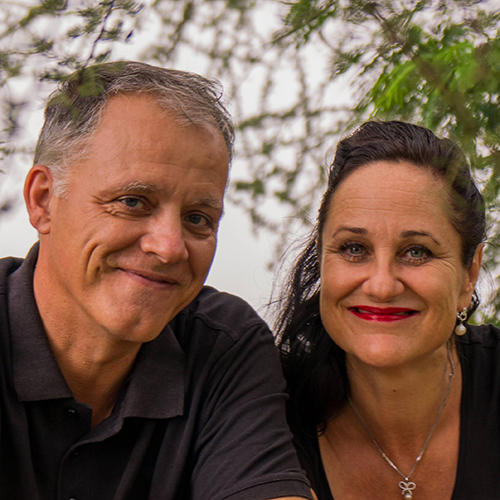
Alice Tlustos (alice.tlustos@careofcreation.org) and Martin Tlustos (martin.tlustos@careofcreation.org) are from Austria. They currently live in central Tanzania where they operate a model farm and agricultural training center. It is a collaborative project of Care of Creation International, Hilfe die ankommt (an Austrian evangelical charitable NGO), and the Anglican Church of Tanzania. The Tlustos previously served more than 20 years with Wycliffe Bible Translators. They have been married for more than 30 years and have five children and five grandchildren.
EMQ, Volume 59, Issue 2. Copyright © 2023 by Missio Nexus. All rights reserved. Not to be reproduced or copied in any form without written permission from Missio Nexus. Email: EMQ@MissioNexus.org.




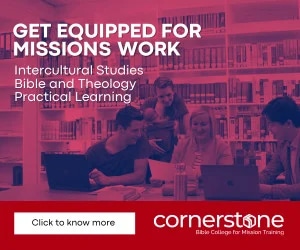
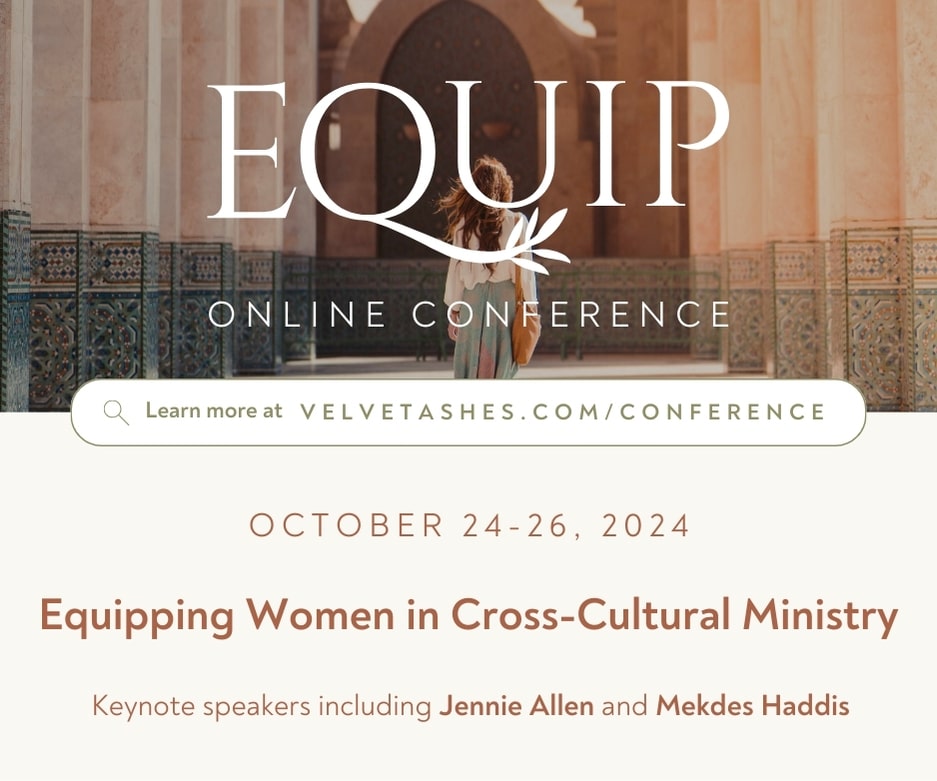
Responses